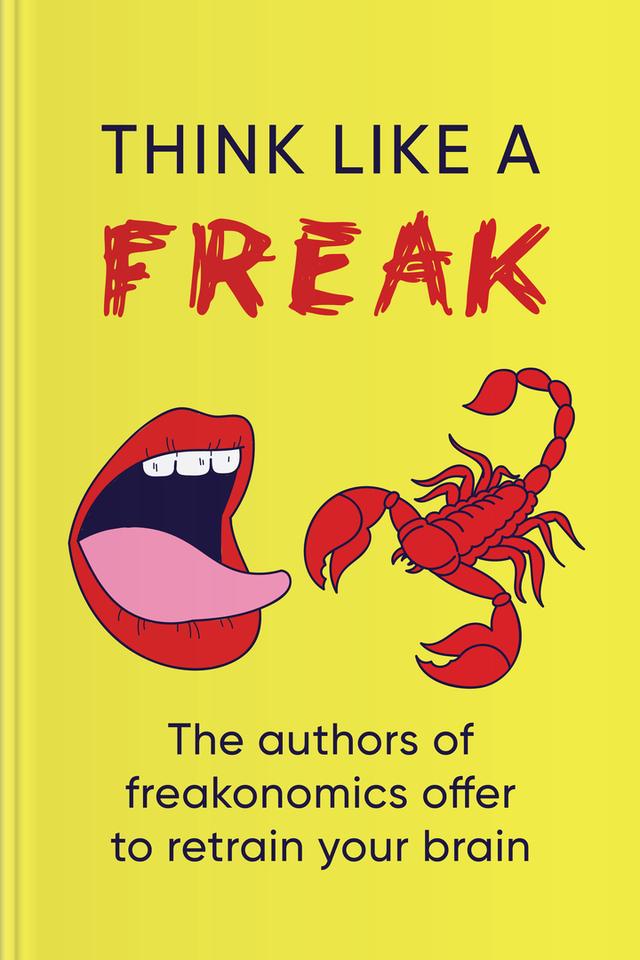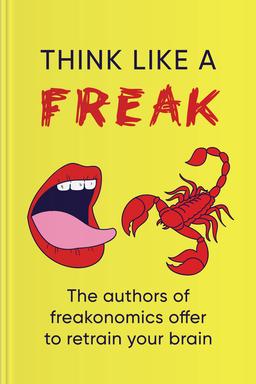You’ll learn
- How thinking like a Freak helps tackle problems
- Why thinking small is the best
- The power of saying “I don’t know”
- How to motivate people to do what you need
- Why giving up isn’t that bad
Protect the world’s peace. Donate to support Ukraine

first KEY POINT
Many people need to work together toward one goal when solving large-scale issues. You probably think that’s impossible.
The truth is any change requires a shift in thinking. We must think rationally and creatively — like a Freak — to get insight into the world’s processes and try to fix the most pressing problems.Steven D. Levitt and Stephen J. Dubner suggest a new way of thinking with an economic approach. It’s free of biases, based on data, and simple to adopt. According to them, understanding incentives is the first step to deciphering and solving an issue. We must also understand where to look for relevant data to unravel the complexities of our world.Unfortunately, a lot of facts we accept as common knowledge are wrong. Therefore, we must question what we know to prevent biases from influencing our decisions. Another barrier to rational thinking is believing that if things are related, one must cause the other.Sometimes, agreeing with your social circle is easy, especially on complex or controversial issues. Who wants to argue about the local-food movement with their in-laws? However, a herd mentality is an enemy of change, which we’ll discuss later.This summary offers advice on thinking like a Freak, whether you’re solving minor daily problems or global issues. Of course, you must be ready to face downsides when these strategies lead to disagreements. However, lingering difficulties require new solutions. So hop on and start thinking like a Freak!
second KEY POINT
Many believe the hardest thing to say is to confess love, but saying “I don’t know” is much more challenging. People don’t want to admit not knowing something, especially in business and politics.Sometimes, it’s impossible. When multiple factors affect an issue, you have to guess which ones had an impact and which were coincidental. You must predict the future by filling in the gaps in knowledge with guesswork. A study by CXO Advisory Group revealed that stock market predictions were around 50% correct.No one, including the experts, knows everything, so why do we hide it? Again, we choose our reputation over the greater good. Appearing smart is a powerful incentive.

Continue reading with Headway app
Continue readingfirst KEY POINT
second KEY POINT
third KEY POINT
fourth KEY POINT
fifth KEY POINT